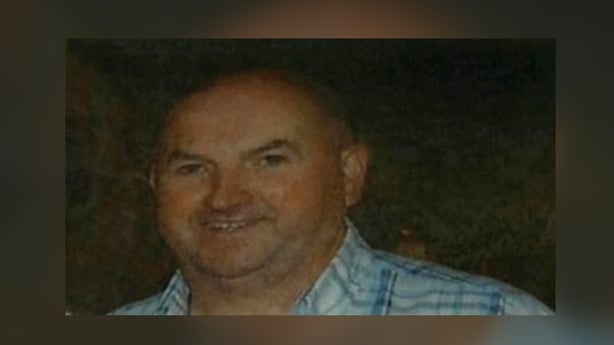The Supreme Court will give judgment at a later date on an appeal by Tipperary farmer Patrick Quirke against his conviction for the murder of Bobby Ryan.
The court heard submissions from prosecution and defence lawyers this morning on the potential consequences of its recent ruling that key evidence used in his trial was obtained unlawfully.
In March the seven-judge court ruled that the seizure and analysis of a computer from Mr Quirke's home was unlawful.
Today his lawyers told the Supreme Court that the consequence of that ruling meant the case should be retried and the issue of the admissibility of the evidence in question was one for a trial judge.
Senior Counsel Bernard Condon said the seizure and analysis of a computer from the Quirke home was more than an interference with privacy rights, it was an unconstitutional breach of those rights.
He did not accept submissions from the prosecution that a district court judge was likely to have granted the warrant to seize and search the computers had they been told of the intention.
He said the judge had discretion to balance the privacy rights of a family against the fact that the gardaí wanted it.
He said the failure by investigating gardaí to tell the judge was more than inadvertent.
Lawyers for the DPP said the entry to the premises took place under a lawful warrant and no question arises about that.

The issue to be considered was what were the consequences and what difference would it have made.
Senior Counsel Sean Guerin said if gardaí had specified that they wanted to seize and search a computer there would have been justification offered for that step.
He said it was clear from the evidence that gardaí believed there may have been supporting evidence contained on the computers relating to Quirke's movements on the date of Mr Ryan’s disappearance and it was open to the court to conclude that no district judge would have refused such a warrant.
Lawyers for the DPP said it was accepted and acknowledged that an error had been made in not telling a district court judge of an intention to seize and search computers.
However Mr Guerin said an appeal court could conduct whether or not the privacy breach was unjustifiable with equal care and equal regard to the constitutionally protected private areas of life and with the same scrutiny.
Mr Guerin said it did not mean that the absence of prior judicial assessment (of an intention to search and seize particular evidence) was purely administrative.
The protection of privacy rights had high value but that value could be brought at a later stage in the process and careful judicial scrutiny could still be conducted.
He said the criticism of the seizure and search of the computer was not because there was not justification for it but because the district court judge had not been told about it.
While that was a valid criticism, a decision at this stage that the evidence should be excluded "pulls too far" on the protection of the constitutional right to privacy to bring the criminal justice system into disrepute.
Mr Quirke, 52, is serving a life sentence imposed after his conviction in 2019 following a 15-week trial.
He lost an appeal against his conviction but the Supreme Court heard a further appeal on two issues.
Mr Quirke’s lawyers had argued before the Supreme Court that a search of his home in 2013, during which key prosecution evidence was seized, was unlawful because the warrant was invalid as it did not specify that computers were to be seized and analysed.
The court ruled the analysis of the computer led to a "more significant intrusion" into the privacy rights of the accused than permitted.
The court said the law allowed for a search of a physical space and while a computer could be examined as a physical object for, as an example, fingerprints, its use "as a portal into a virtual space" would have to be specified by gardaí when applying for a warrant.
Since its decision in March the Supreme Court has received extensive written submissions from both sides.
After brief oral submissions this morning the court reserved judgment in the case and will give its decision at a later date.







